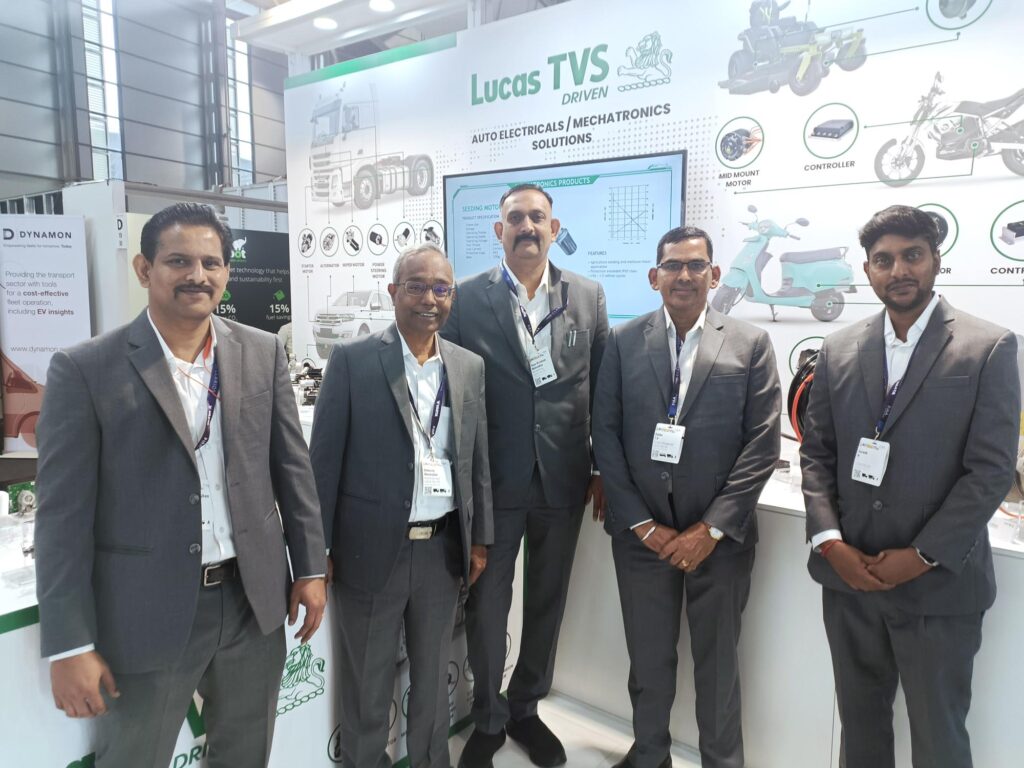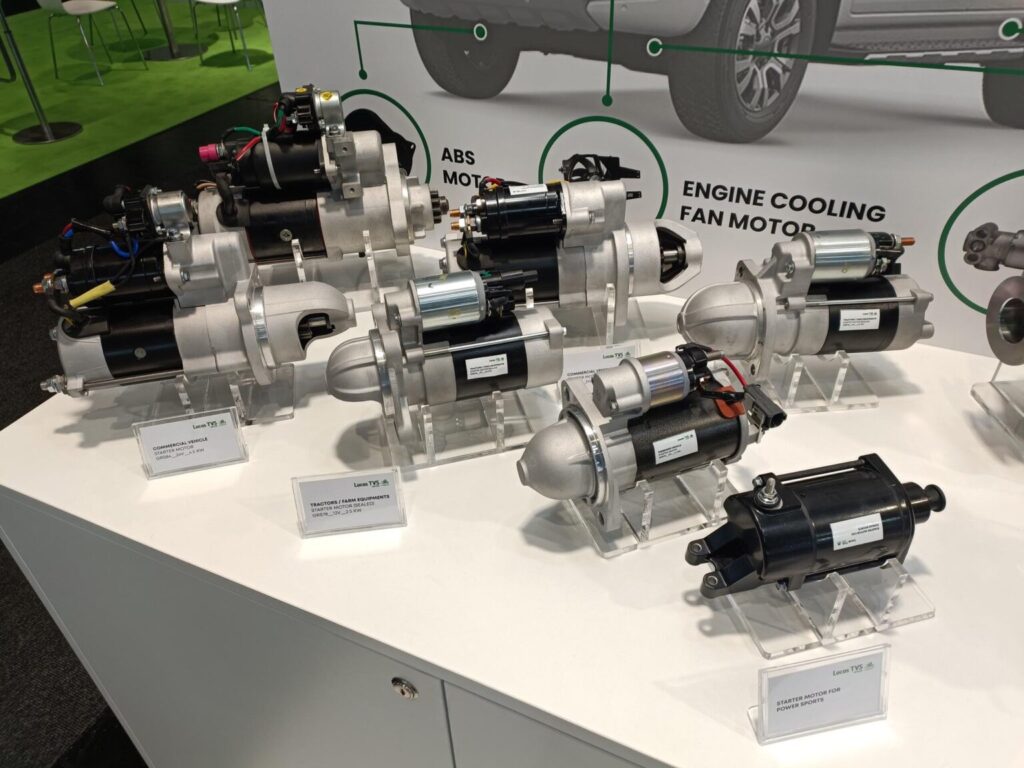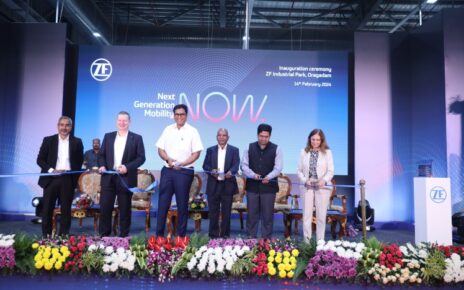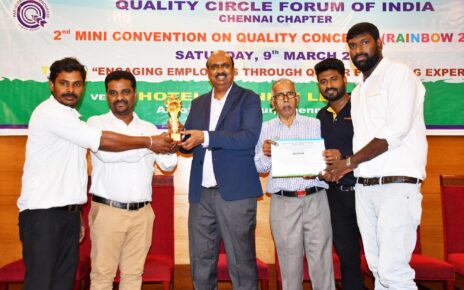
Lucas TVS, a leading name in the Indian automotive electricals sector, showcased its diverse product portfolio and strategic vision at IAA Transportation 2024. Known for its dominance in the domestic market, the company is now charting a course for expansion into Europe and other global markets. The event provided an ideal platform for Lucas TVS to highlight its latest innovations, including EV-specific motors and advanced manufacturing capabilities.
“We are a leader in automotive electricals, especially in the domestic market in India, and now we aim to expand our base in Europe and other countries,” said D. Baburaj, Head – Marketing, Lucas TVS. “At IAA, our goal is to showcase not only our core products like starter motors, alternators, and wiper motors but also the advanced motors we’ve developed, such as EPS motors and ABS motors, which are already being supplied to select customers in India.”
Strategic Focus on EVs and CVs
Lucas TVS emphasized its focus on the evolving electric vehicle (EV) segment. The company sees significant opportunities in developing and supplying products tailored for EVs, both in domestic and international markets. Baburaj explained, “We are keen to explore opportunities in the EV segment and identify the types of products we can develop and offer to global customers.”

The company’s commercial vehicle segment also holds promising growth potential. While volumes in this category may be smaller, the value contribution from products like starter motors, alternators, and wiper systems is substantial. “This segment is a key area for improving our revenue, both in terms of top-line and bottom-line growth,” Baburaj noted.
Investment in Excellence
Over the past four years, Lucas TVS has invested around €50 million in upgrading its manufacturing capabilities. These investments aim to ensure global quality standards and cater to the rising demand for both traditional and electric vehicle components. “Even though there is a lot of talk about electrification, we believe internal combustion engines will continue for some more time. This is why we have cautiously invested in manufacturing lines to maintain quality and meet global standards,” Baburaj said.
The company has implemented these upgrades not only at its main Chennai facility but also across its other plants. This strategic move has impressed potential customers during recent interactions. “We have showcased these advancements to some of our customers, and they have shown keen interest in our capabilities,” Baburaj added.
Expanding Global Presence
Currently, Lucas TVS exports starter motors and wiper motors to the United States and supplies compressor motors to a key customer in Europe. However, the company sees significant untapped potential in the European market for its standard products. Baburaj pointed out that customers are increasingly looking for alternatives to Chinese suppliers, which has created a favorable environment for Indian manufacturers like Lucas TVS.
“Our starters and wiper motors are supplied to select OEMs in the U.S., and we aim to replicate this success in Europe,” Baburaj stated. “India is seen as a potential base, and we are leveraging this perception to expand our footprint globally.”
Navigating Market Challenges
Reflecting on the fiscal year 2024-25, Baburaj admitted that the commercial vehicle segment’s growth has been slower than anticipated. “We expected growth in the commercial vehicle segment from Q2 onwards, but unfortunately, it hasn’t materialized. We foresee some improvement in Q4,” he said. Passenger vehicles, on the other hand, have shown robust growth, although some slowdown is expected in the coming months.
To mitigate market uncertainties, Lucas TVS is diversifying its product portfolio and targeting new opportunities. Baburaj concluded optimistically, “We believe that by expanding our product offerings, especially in the EV and passenger vehicle segments, we can maintain steady growth despite global economic challenges.”




